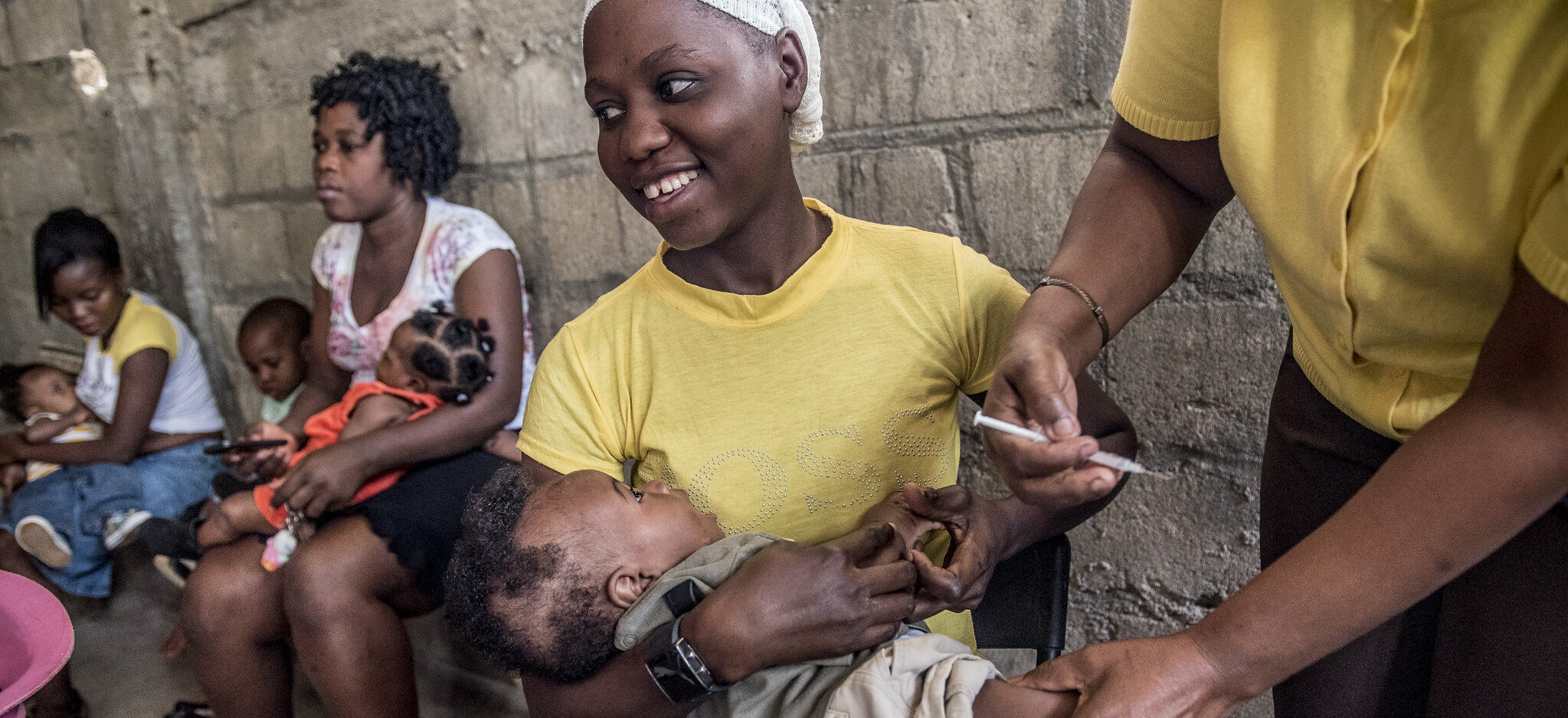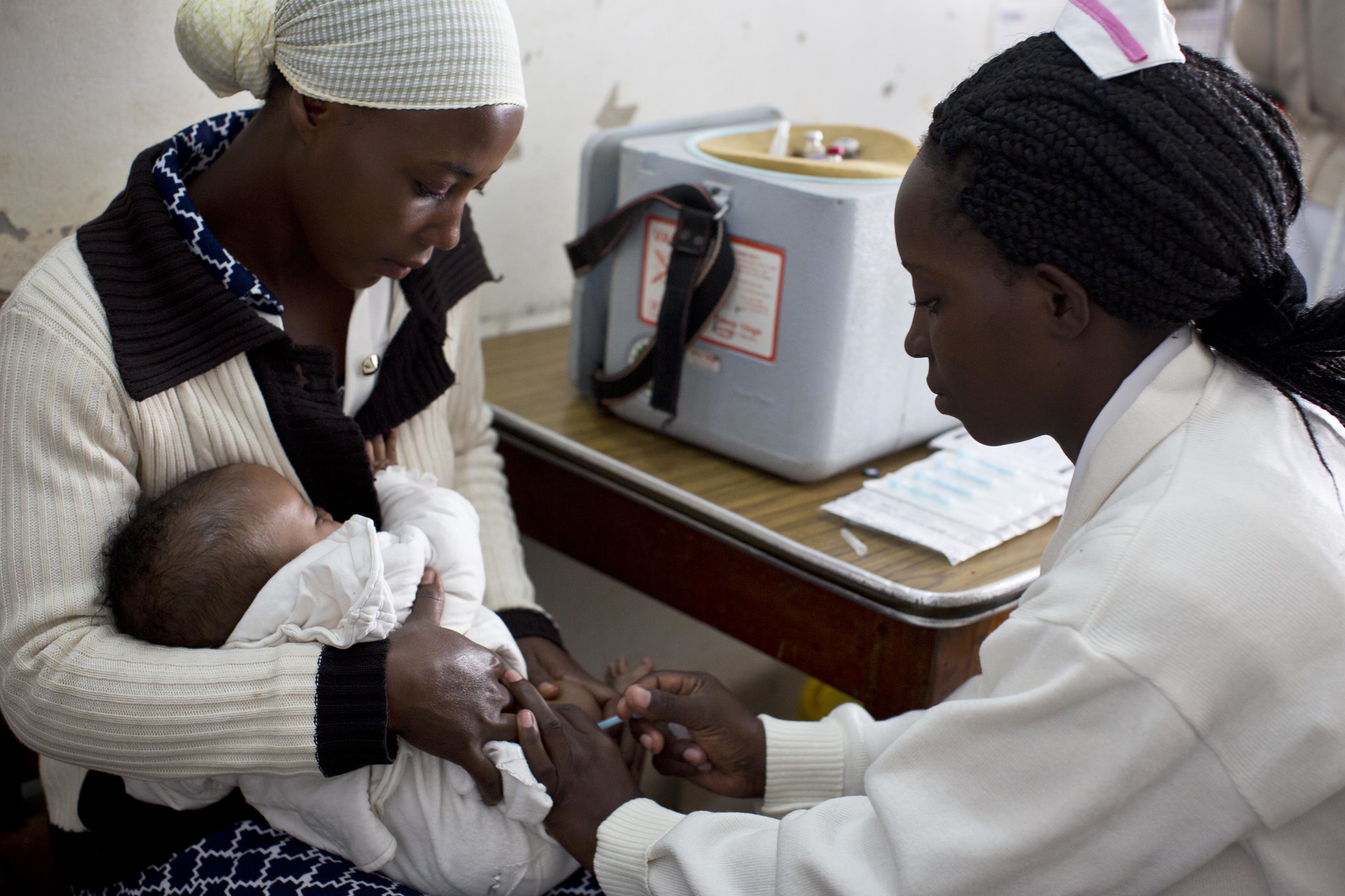Now Is the Time to Recognize and Reduce Gender-Related Barriers to Immunization
Published on July 15, 2021

In a fishing village outside a west African capital city, a mother described a difficult choice she had to make – sell her wares at the marketplace to generate income for her family or take her young child to get vaccinated. Given where and when immunization was provided, she could not do both. She prioritized the immediate needs of her entire family over seeking this preventive service for one child. Her decision was rooted not in complacency or low demand for immunization but in her gender-based responsibilities as both her children’s primary caregiver and provider for her family.
Immunization programs have long overlooked gender-related barriers to immunization. Notably, household surveys in most countries reveal no real difference in vaccination coverage between boys and girls. The key is understanding the impact that gender-related barriers have on women as caregivers. MOMENTUM recognizes that these barriers lie on the critical pathway to improving equity and must be addressed so that all children are protected from vaccine-preventable diseases.
A review by the Equity Reference Group for Immunization1 identified several key gender-related barriers affecting women that, in turn, affect vaccination of all children. In addition to the physical, financial, and cultural barriers and time constraints that often limit women’s access to services for themselves, many women have lower status than men within their communities and families, restricting their control over family resources and decisions on care for their children. In many instances, women also have lower levels of education and health literacy than men yet commonly are relied upon as the primary caregivers for their families. As such, they are responsible for taking their children to receive care, often experiencing poor quality services but having little input as to where, when, or how those services are provided.
The COVID-19 pandemic has exacerbated these inequities and increased barriers to access and use of vaccination services. With global immunization coverage stalled for the past decade at 85 percent2 (with much lower coverage in urban slums, rural remote areas, and conflict and fragile settings), an urgent need exists to identify and address these obstacles. MOMENTUM is teaming up with WHO; UNICEF; Gavi, the Vaccine Alliance; and other key players to implement the strategies reflected in the Immunization Agenda 2030 (IA2030) and Gavi’s gender policy adopted in 2020.
IA2030 calls for tailored strategies to understand and overcome gender-related barriers faced by caregivers and health workers to immunization service access. Similarly, Gavi’s multi-faceted gender policy calls for: building in-country capacity to recognize and analyze gender-related barriers; advocating for action; promoting an integrated, gender-sensitive approach to reach zero-dose and under-immunized children and communities; learning from emerging experience; and expanding partnerships beyond the health sector.

Building on this groundswell of attention and support, MOMENTUM is collaborating with partners at global, regional, country, subnational, and community levels to promote practical steps to:
- Assess: Ensure that baseline assessments actively seek and identify gender-related barriers to immunization so they can be addressed.
- Advocate and communicate: Sensitize counterparts at national and subnational levels on why and how to reduce gender barriers to vaccination. Communicate regularly about gender-related barriers to immunization and progress in overcoming them.
- Engage: Increase female representation in co-creating interventions, applying a gender lens to design activities to reduce zero-dose and under-immunized children. Two ways of doing so are to:
- Partner with trusted local organizations whose expertise includes gender equity, and
- Expand the engagement of women in planning where and when vaccination services are provided.
- Increase male support: Expand male involvement in immunization through targeted communication that clearly explains the steps they can take and why it’s in their interests to do so.
- Learn and share: Apply tailored, meaningful measures to monitor and evaluate interventions to improve gender equity and adapt efforts based on learning. Share experience across countries and with global and regional partners to amplify learning and strengthen strategies.
- Measure: Monitor vaccination coverage and doses administered broken down by sex, including for services provided by private practitioners.
- Enhance protection: Support the introduction and uptake of vaccines against diseases across the life course, such as human papillomavirus (HPV) that disproportionately affects the health of women.
“Our child is our responsibility. After learning the importance of vaccination from the postnatal unit, I want to fulfill my duty as a father and escort my wife for vaccination services so that my child will not miss a dose. If my wife is busy, I can easily remind her when the child is due for vaccination. I will also talk to my fellow colleagues [about immunization].”
—A father in South Sudan
In partnership with other committed actors at global and country levels, MOMENTUM is ideally placed and technically equipped to take strategic, innovative actions to break down barriers to equity so that everyone benefits from vaccines. The time for action is now!
MOMENTUM Routine Immunization Transformation and Equity focuses on the sustainable strengthening of routine immunization programs to overcome the obstacles contributing to declining immunization rates and address the barriers to reaching zero-dose and under-immunized children with life-saving vaccines and other health services.
References
- Equity Reference Group for Immunization. “A gender lens to advance equity in immunization.” ERG Discussion Paper 05. December 2018. https://sites.google.com/view/erg4immunisation/discussion-papers
- World Health Organization. Progress Towards Global Immunization Goals-2019. https://www.who.int/immunization/monitoring_surveillance/SlidesGlobalImmunization.pdf?ua=1

